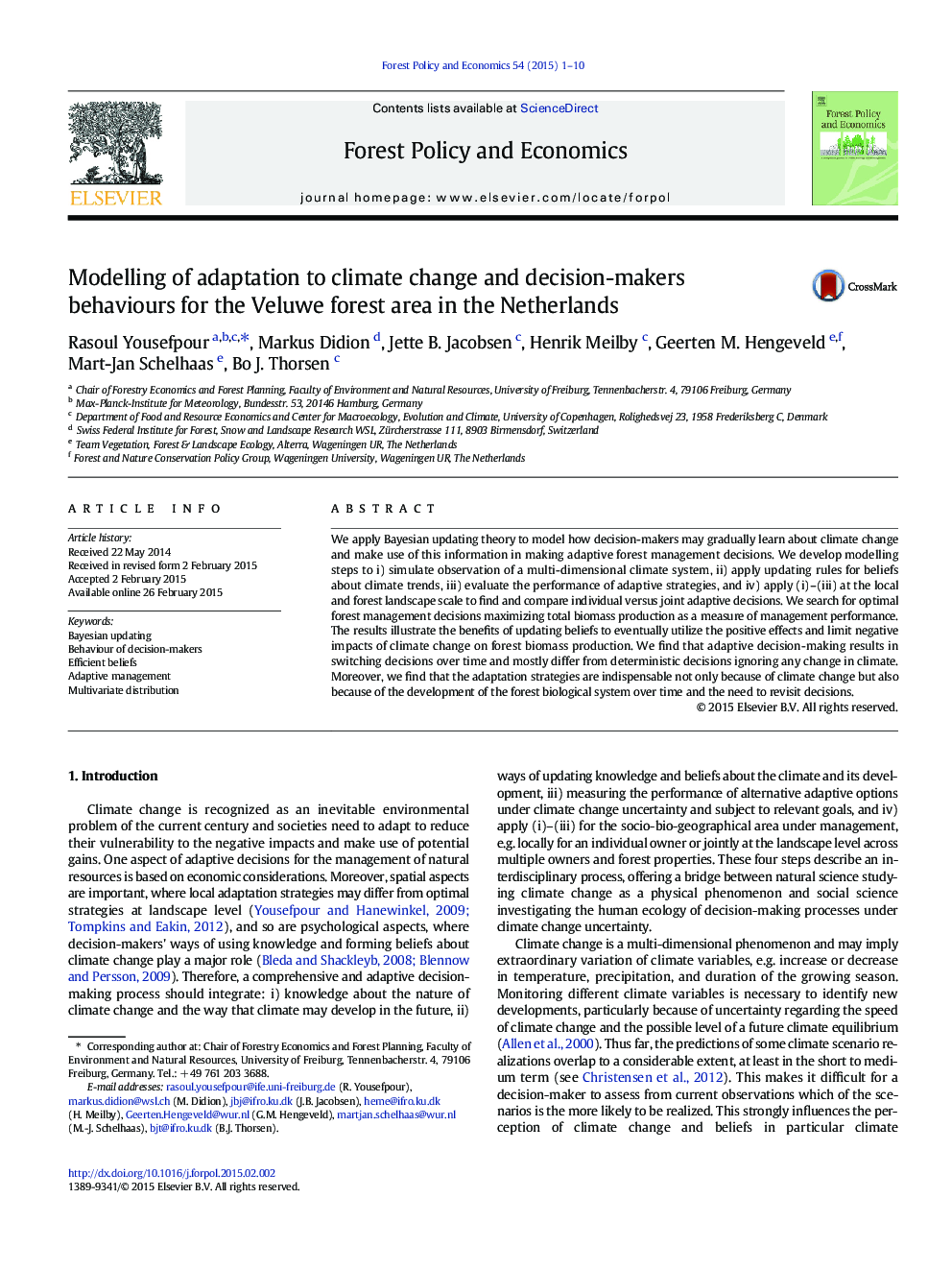| Article ID | Journal | Published Year | Pages | File Type |
|---|---|---|---|---|
| 91190 | Forest Policy and Economics | 2015 | 10 Pages |
•Conceptual modelling of adaptive forest management•Bayesian updating of beliefs based on the risk and uncertainty inherent in climate change•Multidimensional observation of climate to recognize the actual climate scenario realization•Sensitivity of adaptive decisions to local properties and owners types•Maximizing biomass production of forest ecosystems
We apply Bayesian updating theory to model how decision-makers may gradually learn about climate change and make use of this information in making adaptive forest management decisions. We develop modelling steps to i) simulate observation of a multi-dimensional climate system, ii) apply updating rules for beliefs about climate trends, iii) evaluate the performance of adaptive strategies, and iv) apply (i)–(iii) at the local and forest landscape scale to find and compare individual versus joint adaptive decisions. We search for optimal forest management decisions maximizing total biomass production as a measure of management performance. The results illustrate the benefits of updating beliefs to eventually utilize the positive effects and limit negative impacts of climate change on forest biomass production. We find that adaptive decision-making results in switching decisions over time and mostly differ from deterministic decisions ignoring any change in climate. Moreover, we find that the adaptation strategies are indispensable not only because of climate change but also because of the development of the forest biological system over time and the need to revisit decisions.
